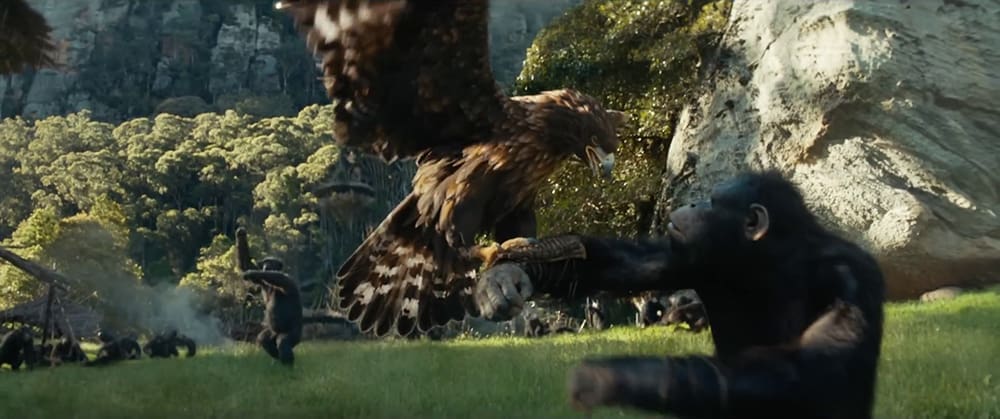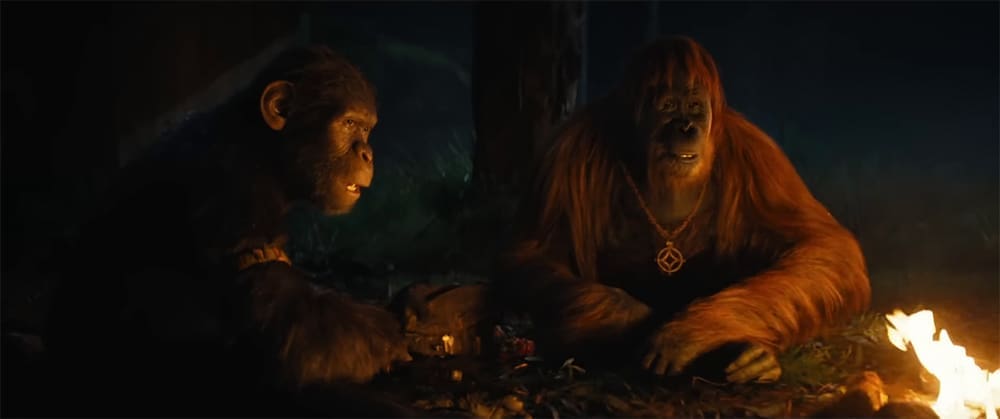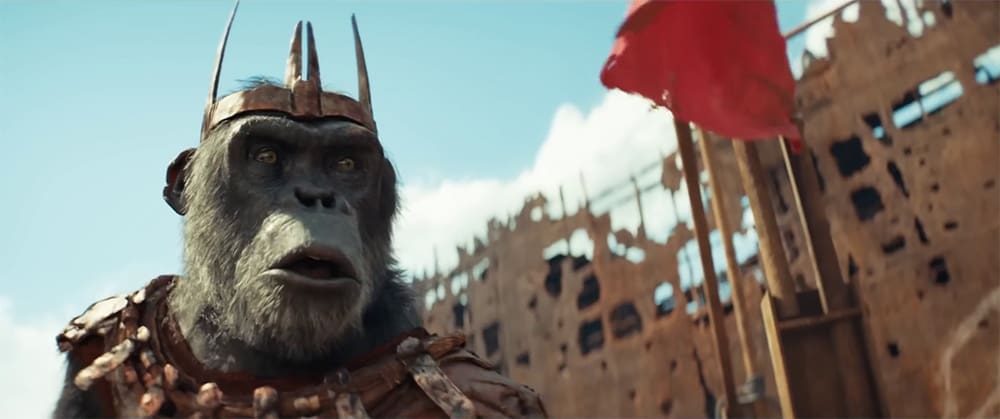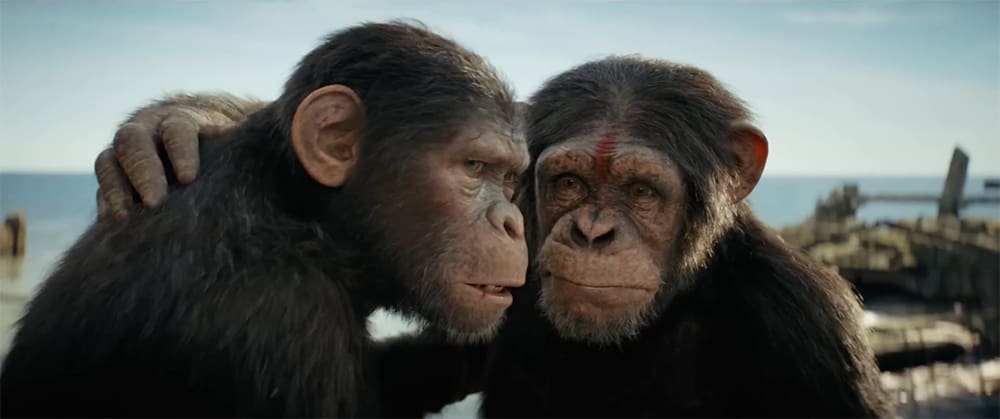Kingdom of the Planet of the Apes lopes into theatres this weekend, an epic ape odyssey with classic themes, nostalgic visuals, and the sort of male hero’s journey which is far too often lacking in modern cinema.

Andy Serkis (The Lord of the Rings) does not return as ‘Caesar’ in Kingdom, but white male actor Owen Teague competently steps into the role of a new chimpanzee protagonist named Noa, the son of a noble ape chieftain. Many generations have passed since the events of the previous films, and the apes have begun to form primitive civilizations. Bereft of the power of speech, humans appear to be nearly extinct and are now referred to merely as ‘Echoes.’
RELATED: Sword & Scandal Brings [NSFW] Danger Back to Fiction!
When tragedy befalls his tribe, Noa must ‘man-up’ and embark upon a hero’s quest.

Turns out Disney (which acquired the franchise in 2019) actually can cast a straight white male lead protagonist—but only if he’s playing a monkey! Someone in the DEI department at Disney must have been asleep at the wheel. Actor Owen Teague may well go down in the history books as the last of his kind.
While the original 1968 film franchise, comprising five films, started out silly and only got more ridiculous, the rebooted franchise has consistently produced competent and well-made monkey adventures. Kingdom may well be the best yet.

The original 1968 film was written by Rod Sterling (The Twilight Zone) and Michael Wilson (Lawrence of Arabia), who had previously been unable to have his name publicly attached to his screenplays due to the HUAC Hollywood blacklist against Communist subversives. Despite the involvement of Christian actor Charlton Heston, the film stood out for its ham-fisted and contemptuous treatment of religion, a theme that only got worse in the sequels.
In some ways, the original films foreshadowed the kind of autistic self-aggrandizement and contemptuousness toward religion that only became mainstream in film and television decades later, in productions such as The Big Bang Theory, Rick and Morty, Velma (2023), and Star Trek: Discovery.

Eschewing the Communist propaganda of the old films, however, Kingdom of the Planet of the Apes prefers to tell an uplifting tale about a lost prince setting out on an epic journey to rescue his tribe from a burgeoning monkey kingdom that resembles ancient Babylonia, which conquers foreign tribes and forcibly relocates them to their capital to assist in their work.
RELATED: Bad Boys: Ride or Die: Will Smith & Martin Lawrence On The Lam
Kingdom of the Planet of the Apes is a masterclass in the art of cinema, excelling in visual storytelling, reveling in classic film tropes, and taking visual effects to a level never before seen. Huge amounts of worldbuilding are deftly conveyed without exposition, and the computer-generated characters are more expressive than ever.

The film ends on a haunting note, conveying a timely theme rarely seen in modern Hollywood concerning the dangers of outsiders.
Kingdom’s production budget was estimated to be $160-165 million and the film is projected to make back $50-55 million in its opening weekend. The visual effects team previously worked on James Cameron’s Avatar: The Way of Water, and used many of the same techniques to create the photorealistic creatures of the film.
Kingdom of the Planet of the Apes does not have any end-credit scenes but does feature an intriguing audio queue as the final credits roll.
What did you think of Kingdom? Let us know in the comments below!
NEXT: Derek Ting’s ‘Agent Recon’ With Chuck Norris Who Doesn’t Age, He Decides How Old He Is

Don’t care it’s still owned by Disney and they profit from it. Let it tank!
I’m surprised. This looked pretty girl-bossy from the trailers and things I’ve heard here and there.
surprised they still make these, I remember enjoying the first one and finding the sequel dull